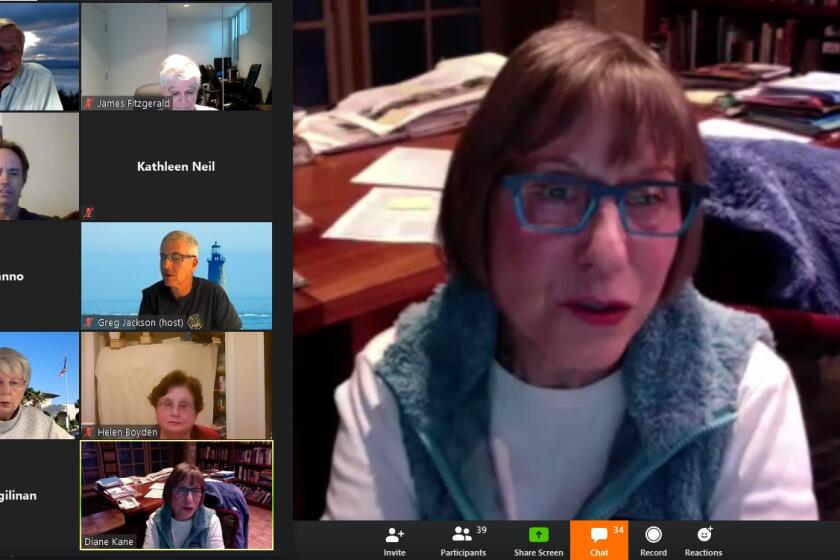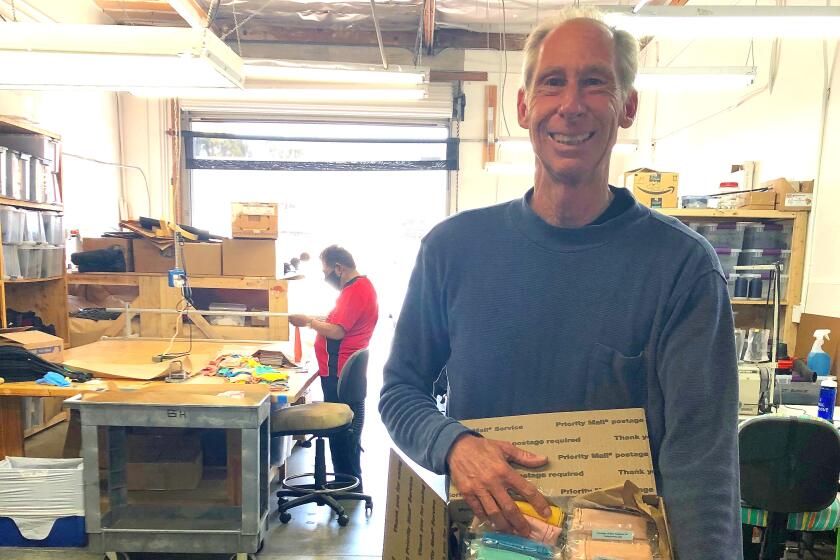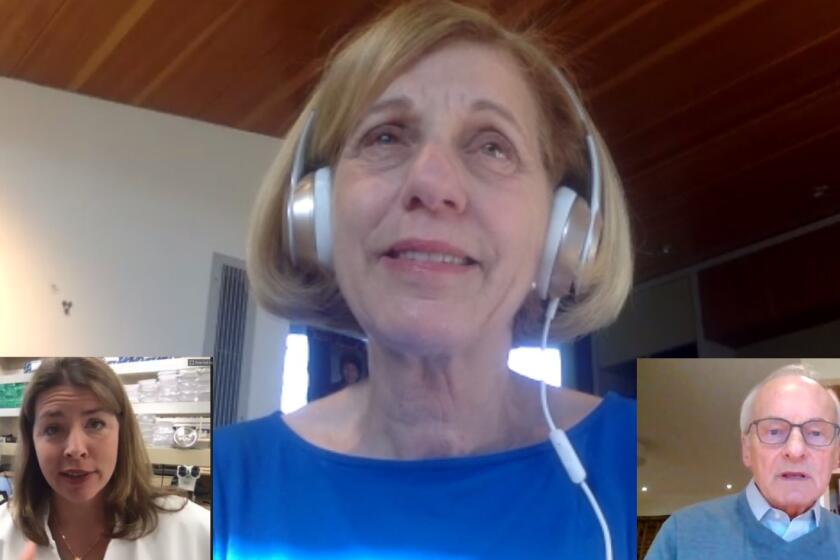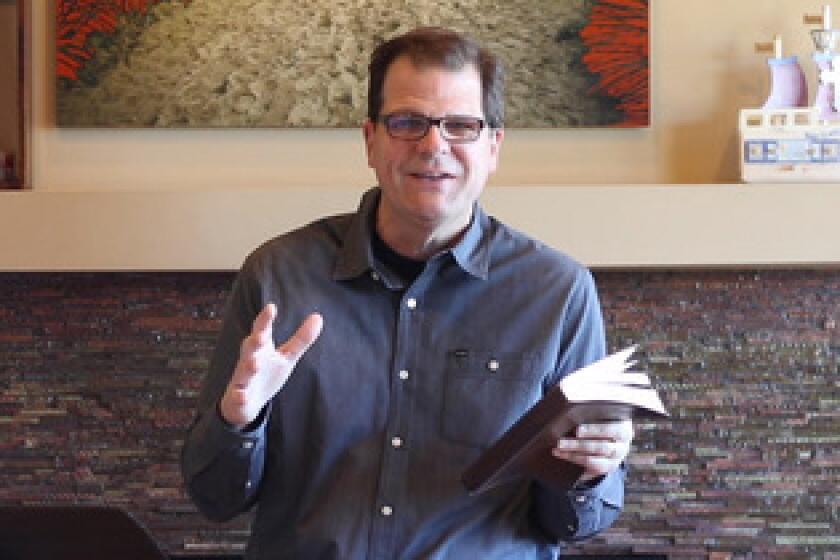People in Your La Jolla Neighborhood: Meet ‘60s civil rights activist Maureen Murphy
La Jollan Maureen Murphy didn’t study history when she was younger; she was in it.
In her early 20s, Murphy was a civil-rights activist who campaigned aggressively to register African-American voters all over the still-segregated South. As her thanks, she got shot at by a racist in Louisiana and lost two good friends at one of modern history’s most contemptible crime scenes.
It was outrage over the beating and shooting deaths of James Chaney, Andrew Goodman and Michael Schwerner by the Ku Klux Klan — Schwerner was Murphy’s roommate — that helped gain the passage of the Voting Rights Act of 1965. (You might remember a little movie, Mississippi Burning, released about it in 1988 starring Willem Dafoe.)
Murphy went from activist to La Jolla mom in 1971, when she moved here with her husband, Bill, after the birth of their daughter, Nicole. Murphy doesn’t discuss her past casually, so some of her friends don’t even know about it.
This part of you is a secret?
Maybe if I’d gone back to the Bay Area, I would have been active again, but I came here and that’s when I just left my past behind. I had been active my whole life and it was fine settling down with my daughter. It’s just a different phase of your life. And my husband was born in San Diego. It was either San Francisco or here and he wanted to come back and go to architectural school here.
How did you get involved in civil rights?
I grew up in Marin County, where I dated a guy whose father was a famous criminal attorney who defended a lot of union workers. Everyone in that family was politically active, and I became very active through them. Later, I was in Hawaii with my friend who had a big fundraiser for civil rights at his home and Dick Gregory got up to speak. After the event was over, I told Dick that I’d like to go south and work in one of the states. He said, “OK, which organization you want to work for?” And I was like “What?!” But he made a call to SNCC (Student Non-Violent Coordinating Committee) and I left for Atlanta, Georgia in 1963.
But SNCC didn’t want to let Caucasian people into the field to do registration due to safety concerns for us. So I went to work for CORE (Congress of Racial Equality), and an amazing man called James Farmer, because they were more open to having us in mixed groups do voter registration work and be out in the field showing that many white people supported the movement across the nation. They sent me to work in a place call Plaquemine, Louisiana, and I lived with a black family there. Families put you up then.
What was a place called Plaquemine like back then?
I had a lot of bad experiences in Plaquemine. President Kennedy was shot while I was living there and there were signs in the windows that said: “Due to the death of this n-word-loving president, we are closed for the day.” It was very dangerous for people to try to register to vote then.
One day, I was with my friend — a tall, young black girl — doing voter registration ... and you have to visually think of being out in the middle of a dirt road until you come to these little shacks ... and a woman drove by with her daughter in a truck and went by us, then did a U-turn and came back and started yelling names at us. Then she drove away and came back with a shotgun. We jumped into an irrigation channel and she shot at us.. Then she drove away and came back with a shotgun. And we jumped into an irrigation channel and she shot at us.
What did you do?
There’s nothing you can do. You report it to your civil-rights people, but there’s no point in reporting it to the police. They were all involved with the KKK.
How did you get to Meridian from there?
CORE wanted more whites working in Meridian. Our offices were on Lynch Street, by the way. I met Micky Schwerner, Rita Schwerner, Ben Chaney and Pat Walker. We lived in a two-bedroom house. We did a lot of field work, a lot of good things. We were always getting stopped, always getting arrested, because we were outside agitators. But we knew that would happen. It doesn’t make it pleasant, but we were prepared.
So all civil rights organizations organized what we called a “summer invasion” to register voters in 1964. They took 2,000 college students and taught them how to behave, what would happen to them, the names they’d be called. I think they were doing the training in Ohio. But Pat and I, we didn’t need any training. So we were sent to collect books at books at universities and ended up back in New York, living in James Baldwin’s house on West End Avenue with other civil-rights workers. And that’s where we got the news that our friends went missing in Mississippi.
How did you react to the news?
It had a huge effect on us. We were really shaken. We both knew they were dead. Everybody in the civil rights movement knew they were dead. They were brutally killed. And after that, I just didn’t think it was worth it. I switched to the fundraising side of civil rights.
How much did Mississippi Burning get wrong about the murders?
I saw the film only once and many of the situations were wrong, but it is a film so that is to be expected. One thing, though: The FBI did not find the clue to where they were buried.
Who did?
I did. Dick Gregory offered $25,000 as a reward. So I was in San Francisco and we had a pile of letters saying where the boys were buried. Gregory received a letter from a man in DC and I was the one who found the letter and turned it over to the FBI.
Who knows this?
Not a lot of people. There’s a professor in Chicago doing a book on Dick Gregory. He emailed me and said that Dick told him that I was the one who found the letter. And I was contacted when they were trying to do research and background for the film. But I was living in Spain and felt at the time that I did not want to relive that period of my life.
Do you think that lasting social change ever happens because minds are changed, or does it only happen because the people who adhere to the old ways die off and get replaced?
People don’t change. You evolve from your 20s to your 50s. You have different outlooks because you have different responsibilities. But you’re the same core person. And my family is an example of that. I come from such a bigoted family, you have no idea. My parents were very bigoted, and nothing could change them.
Does what’s happening in the U.S. now make you feel like your parents’ world is returning — that all the work you did was for nothing?
Not that it was all for nothing. What we did in the ‘60s, I believe, had a huge impact on the country and changed many laws. If not for the movement, we might not have had the first black president. I think the movement in the 60’s was a very worthwhile because it showed the importance of getting out the vote to all Americans.
But it feels like the work we did has come to the top again. And fortunately, a younger generation does seem to be rising again to meet it.
Get the La Jolla Light weekly in your inbox
News, features and sports about La Jolla, every Thursday for free
You may occasionally receive promotional content from the La Jolla Light.




